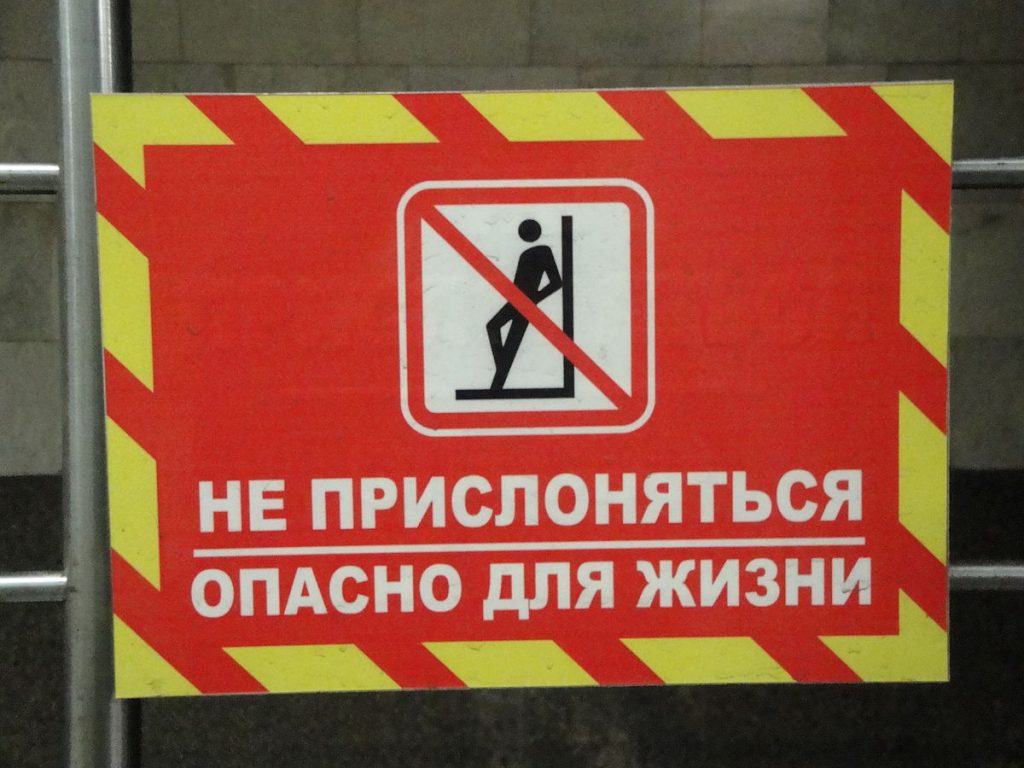3 Kinds of Negation in Russian Posted by Maria on Mar 7, 2018 in language
Are you tempted to use the infamous “nyet” in front of any word to make your sentences negative? Do you get confused between не, ни, and нет? Then read on to learn some common uses of these words.
1. Нет
Negation of the Entire Sentence
This is probably the most famous and the easiest of the three words. It is used to deny, reject, or negate the content of the entire utterance. Нет can function as its own sentence.
- — Алма-Ата́ — столи́ца Казахста́на (Almaty is the capital of Kazakhstan).
— Нет, Астана́ — столи́ца Казахста́на (No, Astana is the capital of Kazakhstan). - — Ты ви́дела но́вый фильм? (Have you seen the new film?)
— Нет (No, I haven’t).
2. Ни
Rejecting Both/All Options
Ни, repeated before multiple coordinated nouns, adjectives, adverbs, or verbs, signals that none of the options is true.
- У нас нет ни компью́тера, ни телеви́зора (We don’t have either a computer or a TV).
- Еле́на ни студе́нтка, ни преподава́тель (Elena is neither a student nor an instructor).
Saying “No Matter How”
Ни is used in concessive expressions that can be summarized as “whatever the circumstances.” They are usually followed by a verb. Here are some of these expressions. Note that in many cases, бы can be omitted.
- куда́ бы ни (wherever, for destinations): Куда́ ни посмо́тришь — одни́ де́ти (Wherever you look, there are children all around)
- где бы ни (wherever, for locations): Где бы ни пря́тался кот, мы его́ найдём (We’ll find the cat wherever he’s hiding)
- кто бы ни (whoever): Кто бы ни стуча́л в дверь, не открыва́й! (Don’t open the door no matter who may be knocking)
- что бы ни (whatever): Что ни де́лается, всё к лу́чшему (Everything that happens is for the best; Russian saying)
- как бы ни (however): Как мы ни стара́лись, мы не смогли́ договори́ться (Try as we might, we weren’t able to come to an agreement)
To Say “Not A Single X”
Ни followed by a noun in the genitive case means “not even a single (noun).” The noun in the sentence would normally be preceded by не (see more below).
- Мы не по́няли ли сло́ва (We couldn’t understand a single word).
- Стой, ни ша́гу! (Freeze, not a step more!)
3. Не
Making Sentences Negative
Не used before the predicate (often a verb) makes the entire sentence negative.
- Я не живу́ в э́том до́ме (I don’t live in this house).
- Э́то не его́ ко́шка (That’s not his cat).
Negating a Quality
You can also use не to negate a specific quality, expressed by an adjective or an adverb. Whether не is a particle that’s written separately from the word that follows or a negative prefix that is part of the word is a different subject beyond the scope of this post. More information is available here (in Russian) and here (in English). To briefly touch upon the subject, contrasting qualities within a sentence normally warrants a space after не:
- Он не тала́нтливый, а стара́тельный (He’s not talented but diligent)
- Петь на́до не гру́стно, а ве́село (You need to sing cheerfully rather than sadly)
I hope this helps you distinguish between the various kinds of negation in Russian. Is there any specific usage you struggle with?

Build vocabulary, practice pronunciation, and more with Transparent Language Online. Available anytime, anywhere, on any device.






Comments:
mjk63:
Maria,
This is really an excellent article. Very clear and helpful. Thank you.
Maria:
@mjk63 Thank you!